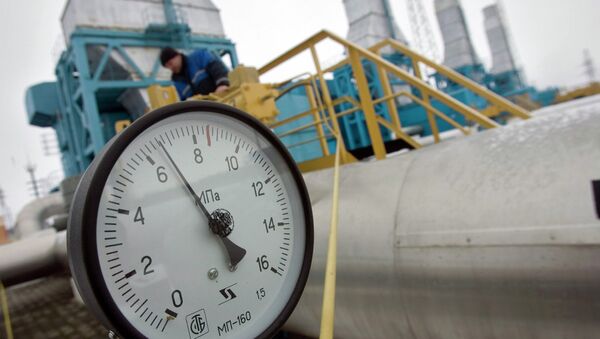WASHINGTON, May 20 (RIA Novosti), Lyudmila Chernova - A gas supply agreement would benefit both Russia and China as the two countries grapple with economic stress, according to Yongjing Zhang, an assistant professor in international affairs at the University of Ottawa.
"For now, Russia and China do share common interests: Russia needs fiscal income from energy sales, while China needs stable sources of energy supplies to meet its ever increasing energy demands," he told RIA Novosti Tuesday.
"So, it is a "win-win" story here," said Zhang, an assistant professor at the Graduate School of Public and International Affairs.
The expert explained that Russia's issues come from its sour relationship with the Western world, whereas China's problem stems from GDP slowdown, especially a looming housing bubble.
"Real delivery of the gas may not start until 2018, but infrastructure on pipelines could be immediate economic stimulus to GDP growth," Zhang noted. "As the contract price is more acceptable nowadays, China should warmly welcome the deal not only for future energy security, but also for immediate economic stimulus."
Despite the expectations for a gas deal to be signed Tuesday, the two countries have failed to agree on price. Nevertheless, it is widely expected to be sealed before Russian President Vladimir Putin leaves China on Wednesday.
Zhang emphasized that China and Russia are both gigantic economic and political powers, which explains their multi-dimensional cooperation.
"It is not to say that Russia and China have become perpetual partners, but rather, they do share close interests nowadays," he said. "During the past 100 years, there were mixed bilateral relationships, some cozy times and some bad memories, between these two large countries."
The expert stressed that the two prominent dimensions are economic and political interests, which are closely related to each other, and the gas deal might bring more parallel interests between China and Russia.
"But do not over-exaggerate the story. Even a marriage certificate does not guarantee husband and wife always think the same way," he added.
Zhang noted that besides concrete economic interests, there are still political concerns for a closer China-Russia relationship.
"Very likely a third country might feel the spill-over pressure, because a stronger neighbor is always more of a potential rival," he said.
Zhang stressed that a deal could have a real impact on worldwide energy prices.
"China has been chasing for energy supplies here and there over the world, for example, CNOOC's recent purchase of Nexen in Canada," he explained. "We would expect China to be less crazy for energy supplies than before. Thus, world energy prices might decrease if total supply increases after the deal, but not that much. A fast growing economy of China eats more energy than it can obtain from Russia."
Thus, the benefit to a deal with China and Russia could be a net positive not only to those two nations, but have a ripple that would be beneficial to all.
Zhang predicts the deal could raise as much as $456 billion for Russian gas over the next 30 years. That is comparable by itself to the annual trade volume between China and the US, which was $520 billion in 2013.


